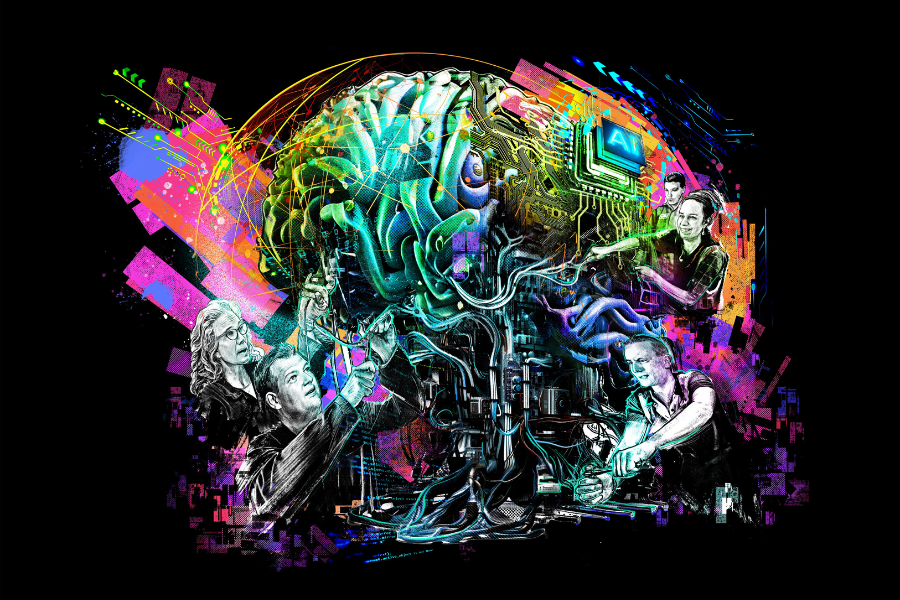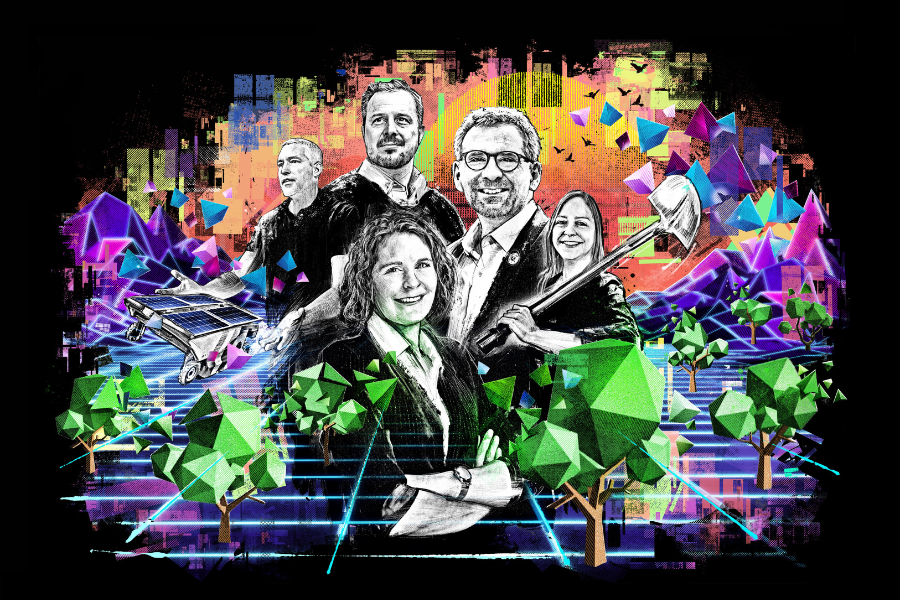Although most people these days possess some degree of digital literacy, it’s a skillset that needs to be developed and maintained as part of a commitment to #LifelongLearning. The right mindset, combined with awareness and know-how, are vital to navigate the digital world effortlessly. Many people have had a crash course in digital technologies recently as offices moved en masse to kitchen tables, and meetings were squeezed onto smartphone screens.
PwC is embracing the potential of digitalisation and actively works to strengthen public trust in a rapidly changing digital world. In recognition of the particularly important role digital skills play right now, PwC Switzerland is offering its Digital Fitness app free of charge to all private users and companies until the end of July 2020. With a host of user-friendly features and targeted content, the app empowers users to stay relevant, boost their digital prowess and navigate the digital world more skillfully.
Andreas Staubli, CEO of PwC Switzerland says: “As the leading audit and advisory company in Switzerland, it is a given for us to support society and the economy. With the Digital Fitness app, we are offering a resource which users can easily integrate into their everyday lives.”
With so many of us staying home right now, it is the perfect time to dive into the digital world and develop new skills for the future.
Learning hasn’t stopped just because educational establishments are closed. Higher education institutions around the country have adapted fast to the situation. In fact, for some, the crisis has served to accelerate ongoing digital transformation projects. The University of St. Gallen (HSG) is one of them. Having launched a new Learning Management System last year, HSG was planning to focus on digital collaboration win the second half of the year. But the time plan was radically redefined as the crisis unfolded.
HSG quickly mobilised blended learning options like web-conferencing to support students and lecturers in quarantine. Throughout, HSG has tried to anticipate and stay one step ahead. When the lockdown announcement became imminent, capacity for online lectures was increased rapidly through a web conferencing tool suitable for our cohorts of 500+ students. The final testing phase is now underway to enable online exams for students no longer able to travel to Switzerland. On a wider scale, this could also be relevant if campus exams are not possible in the summer session.
At HSG, willingness to engage with new tools almost instantly was exceptional. But while the pace of change was welcomed by digital pioneers, it felt like an avalanche for digital rookies now and then. Various video tutorials, regular live Q&A sessions, and an online community “HSG stands together” helped everyone keep up and deliver a smooth continuation of classes for students.
Disruption – like we’re seeing in the Covid-19 crisis – is a great accelerator of change. “People get used to the day-to-day and when something shocks the system, people get out their comfort zone and think about what they can do better,” confirms Louis Leclezio, IMD’s Chief Technology and Customer Experience Officer. The business school has developed a hybrid auditorium (HUB), which blends the 100% virtual experience with the in-situ classroom. Programme content is being adapted to accommodate the vision, with some courses already being taught using the newly designed virtual technology.
IMD is also supporting colleagues through its spirit@imd initiative. Via a dedicated intranet page, employees can quickly find news on coronavirus initiatives involving staff, updates on virtual wellness sessions, plus easy access to a multitude of working tools and information. Louis Leclezio summarises his organisation’s efforts: “We don’t get worried, we get busy.”
These stories highlight what can be achieved with the right attitude, a commitment to solidarity and effective digital enablers.






